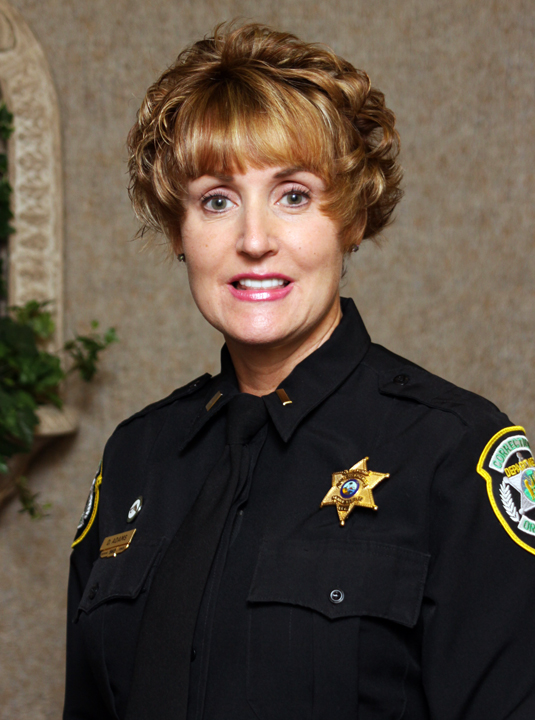
If you are a regular reader of my blog, you know one of my favorite quotes is attributed to Margaret Meade who said:
Never doubt that a small group of thoughtful, committed people can change the world. Indeed, it is the only thing that ever has.
One of my favorite things about traveling is getting to meet inspiring people who are changing their communities and improving the lives of persons with brain disorders.
Here are some examples.
Deanne Adams, a lieutenant in the Orange County Corrections in Orlando, Florida is one of my favorite advocates. I met her shortly after my book was published while attending a Crisis Intervention Team convention in Orlando, Florida. I quickly discovered that Deanne doesn’t stop helping needy persons when she gets off duty. Much of her free time is spent volunteering at the Pathways Drop In Center. 
The Center was founded in 1993 by J. Nelson Kull III, who has schzophrenia, and whose mother also had a severe mental disorder. During a tour, he told me that the drop in center is 100 percent run by persons with mental disorders. It is a wonderful example of how persons with brain disorders can help each other when their symptoms are under control.
Take a few minutes to visit Pathways’ new website and watch an inspiring video of Kull, Lt. Adams and others whose tireless advocacy is improving lives in Orlando.
****************************************************************************************************
No matter where she is or what she is doing, Dr. Tracey Skale, the medical director at the Greater Cincinnati Behavioral Health Services, always finds ways to educate people about mental disorders. Recently, it was through a celebrity Dancing With The Stars competition.
You may remember Dr. Skale from the Minds on the Edge program. She continues to manage its website. My youngest daughter, Traci, is interested in following in Dr. Skale’s shoes — as a community psychiatrist — not a ball room dancer. Last week, Dr. Skale generously permitted Traci to shadow her at GCBH, one of the best run community mental health providers in the country.
Dr. Skale is well-known and admired in Cincinnati and she recently was asked to participate in a charity benefit that pitted local celebrities against each other. They were paired with professional instructors in a ball room dancing competition. When the dancing stopped, the judges overwhelmingly chose Dr. Skale and her partner as the winners. You can watch her dance here.
…………………………………………………………………………………………………………………………………………………………
Last week, I was in Baton Rouge to speak as part of the One Book, One Community program. I was thrilled that the city chose CRAZY: A Father’s Search Through America’s Mental Health Madness to read and discuss. About 140 people attended a public meeting in a library a week before my appearance. During that gathering, they heard from panelists about Baton Rouge mental health services. I came in later during the week to speak at a free event on the LSU campus. We filled about half of a fabulous auditorium that can hold as many as a 1,000. In addition to talking about my book, I shared with the audience what I have learned visiting more than 46 states and touring some 100 treatment programs.
After my speech, a veteran radio personality, Jim Engster, asked me questions in a fireside chat format and then Engster quizzed an impressive panel of local officials.
They included: Rusty Miller, who oversees an Assertive Community Treatment Team in Baton Rouge; Mike Mitchell, the director of the public defender’s office; Clarice Raichel from Lake Charles who is a member of the national board of directors of the National Alliance on Mental Illness; Dr. Raymond Singh, Medical Director of the Louisiana prison system; Agnes Ross, a person with mental illness who lives in Baton Rouge; Judge Kelli Terrell Temple, a City Court Judge; and Corporal Darryl Honore, the CIT instructor for the Baton Rouge police department.
One fact that I learned was Baton Rouge’s mental health services were overwhelmed when Hurricane Katrina hit and the levies in New Orleans failed. Thousands of residents were forced to flee because of flooding and because of its proximity, Baton Rouge was innudated. Many of those fleeing were homeless and had mental disorders.
In East Baton Rouge Parish, one of sixty-four parishes in the state, the number of civil involuntary commitment petitions increased from 190 to 403 and the number of court ordered forensic commitment petitions jumped from 65 to 112.
After a man with a severe mental illness was fatally shot by the police, Baton Rouge got serious about CIT training.
The planners of the One Book, One Community event, Robin Kistler with Louisiana State Univeristy and Abby Hannie with Barnes and Noble, are hopeful that the evening will spark more discussions and lead to improved services in their city.
There are so many excellent books being published about mental illness that I can easily see how other communities could adopt the One Book, One Community reading format.
Improving local mental health services because of a community meeting certain trumps waiting for a tragedy to do the right thing.
Thank you One Book, One Community for making a positive difference in Baton Rogue.




Pete – We loved having you here in Baton Rouge, LA. Thanks for helping us spread the word!
Great post about Pathways in Orlando. The website is wonderful, the video is moving and inspiring and the song by Matt Shenk beautiful. Thanks Pete!
Donna Helsel
Thanks for posting about Pathways and for all you do! Great blog!
Kristi Krug